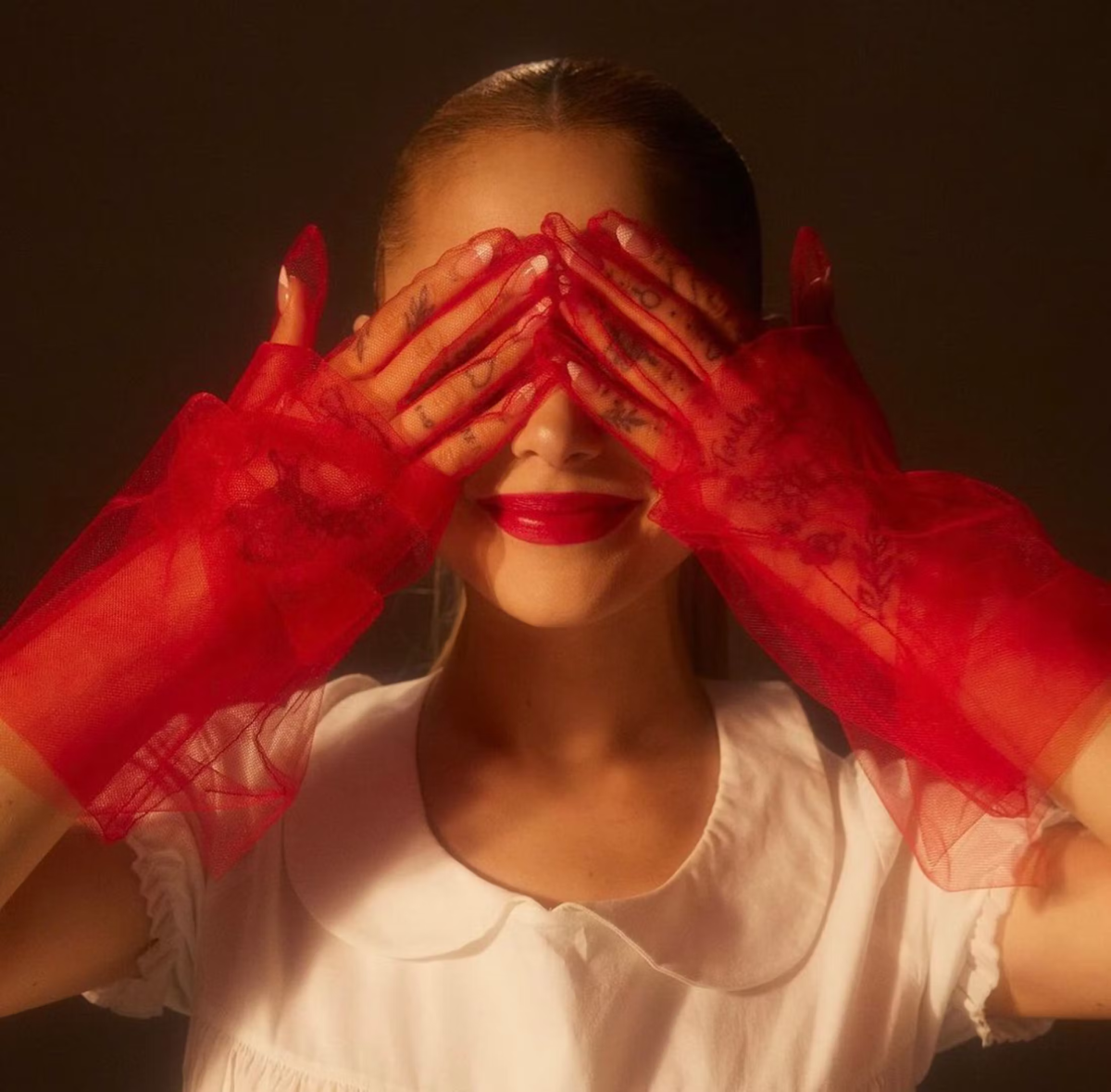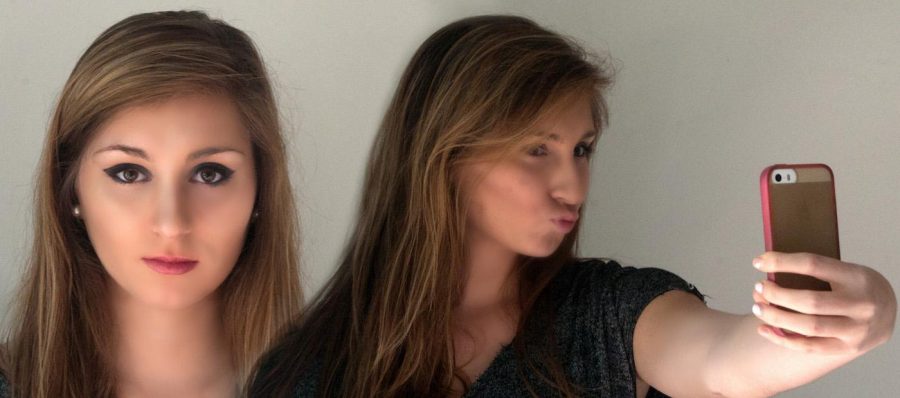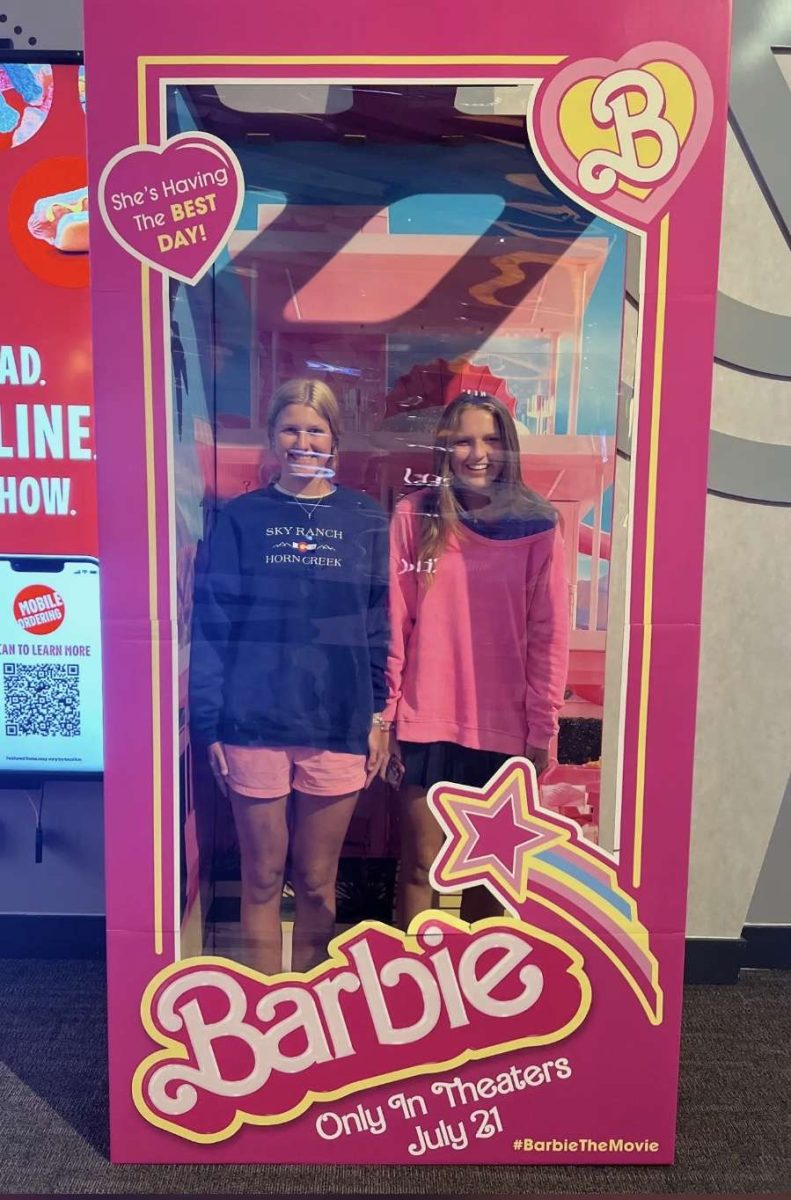In the face of rising expectations of perfection, students turn to both fake and real personas online.
Essena O’Neill seems like she belongs. At least, her selfie does.
With blonde locks tucked behind her ear, a smooth glow kissing her smiling cheeks and one polished eyebrow arched knowingly, O’Neill looks beautiful and carefree in her selfie. The photo seems like it fits in on the Instagram homepage, which displays an artisanal kale panini here, an attractive swimsuit-clad group of friends there, all under the sheen of filtered lacquer.
But on closer look, the caption of O’Neill’s selfie reads, “I had acne here, this is a lot of makeup. I was smiling because I thought I looked good. Happiness based on aesthetics will suffocate your potential on earth.”
This truth-revealing caption was part of a campaign against social media led by 19-year-old O’Neill, a former Instagram model who has amassed over 800,000 followers with photos of her seemingly happy life.
On Nov. 2, she shocked her followers when she suddenly denounced the superficiality of her Instagram in a 17-minute tear-filled video and re-captioned her Instagram photos to reflect the true realities behind them. One of these second-try captions describes a photo of her in a bikini. “Took over 100 in similar poses to make my stomach look good. Would have hardly eaten that day. Would have yelled at my little sister to keep taking them until I was somewhat proud of this. Yep so totally #goals.”
https://www.youtube.com/watch?v=Xe1Qyks8QEM
O’Neill’s drastic action, however, drew criticism from both other digital stars and viewers alike, who called it a hoax and a ploy to get attention. Whether she’s an incredibly brave young woman, a confused teenager facing an identity crisis or an unusually creative attention hog, Essena O’Neill has done one thing: point out the superficiality of Instagram.
The Greater End for Social Media
Like O’Neill, many young people everywhere assume a fake, alternative persona online, and Hockaday students are no exception.
Junior Elinor Sachs faced this issue firsthand when a friend approached her this summer.
“I feel like you go to parties all the time, like you’re just raging all the time. You have an awesome life,” the friend told her. “Your Instagram looks crazy.” Sachs’ friend had perceived her life as one of glamorous spontaneity, in which each passing moment was a wild celebration.
On the contrary, for each of her previously posted photos, Sachs had spent approximately two days at home, deciding from a pool of similar images which picture to post, what filter to use, and a caption that might seem funny and cool.
“Your Instagram looks crazy.” – Friend of Junior Elinor Sachs
Dr. Rosanna Guadagno, an University of Texas at Dallas associate professor of psychology who specializes in social media, attributes part of the problem to social comparison, a phenomenon in which people compare themselves with others to gauge how well they’re doing at an activity.
“It could be social media use, calculus, job success, reading, what have you,” Guadagno said. “We like to compare ourselves with others, and we’re happiest when we compare ourselves to others and we compare favorably.”
For many students, hard numbers, in the form of followers and likes, have become a way to compete with each other.
“People don’t say, ‘Wow, I think people would be really interested by what I did this weekend,’” Sachs said. “It’s more like, ‘Wow, I got 300 likes,’ or ‘Wow, I need best filter for this picture.’”
Though senior Ellie Bush uses Instagram to appreciate photography, she also observes that some people take pictures to achieve a greater end, which she describes as to “receive likes and create a virtual reputation.”
In fact, reputation causes online superficiality in another way: social media users engage in impression management, the idea that people try to put their best foot forward in interactions to give off a good impression.
“When you don’t know what person looks like or you hear someone talk about a person, you immediately go look them up on Facebook and that’s how you’re judging them,” Sachs said. “People always want to look good in front of other people.”
While normal impression management, according to Guadagno, simply emphasizes different features of a personality, impression management on social media can become warped. Because there’s no “checks-and-balances” system to fact-check photos and information for accuracy, adolescents using impression management online can cross over into deceptiveness about their lives. “They basically present the idea that they’re doing really, really well in life, when they’re not,” Guadagno said.
However, friends and followers can actually misinterpret someone’s deceptive online persona as real. In fact, studies from Pace University published in May 2015 show a link between the number of strangers an Instagram user follows and their probability of experiencing depressive symptoms like fearfulness, loneliness or fatigue.
Because of this misinterpretation, deceptive online personas may also encourage a vicious cycle. “Not only does superficiality in social media make followers feel worse, but it also drives them to engage in the same kind of deceptive impression management strategies,” Guadagno said.
The Rise of Fake (and Real) Instagram Accounts
In response to the superficiality and pressures of Instagram, some students have created Finstagrams, fake Instagram accounts, on which they post any picture or video they want to, versus catering to followers’ wants. These accounts often provide a space that students’ public Instagram accounts can not.
Sachs has one such Finstagram.
“You think that your regular instagram is ‘serious’ and so it has to be professional-looking because that’s what people see you as. People have Finstas because they want to be funny and they want to be goofy, so they need a place to do that,” Sachs said.
Meanwhile, other popular Instagram accounts that directly address the superficiality of social media have also recently risen to popularity among students.
Bush follows the Instagram account Half the Story, which posts seemingly 2-dimensional photos with a twist: the caption provides the real, interesting, and sometimes harsh backstories behind the images, similar to O’Neill’s crusade of re-captioning. “The point of Half The Story is that these people are opening their eyes to how controlling social media is and how they’re no longer taking pictures for pleasure,” Bush said.
Supporting the message of the account, Bush believes that although some students may contrive their personas online, she doesn’t see herself as in a place to judge them.
“You don’t always know half of the story – you can’t really detect emotions through social media, and I think that’s the main issue at stake,” Bush said, “That’s the whole reason why it’s superficial. There aren’t emotions, you know? You can’t see through a picture.”
Jenny Zhu, Staff Writer



















